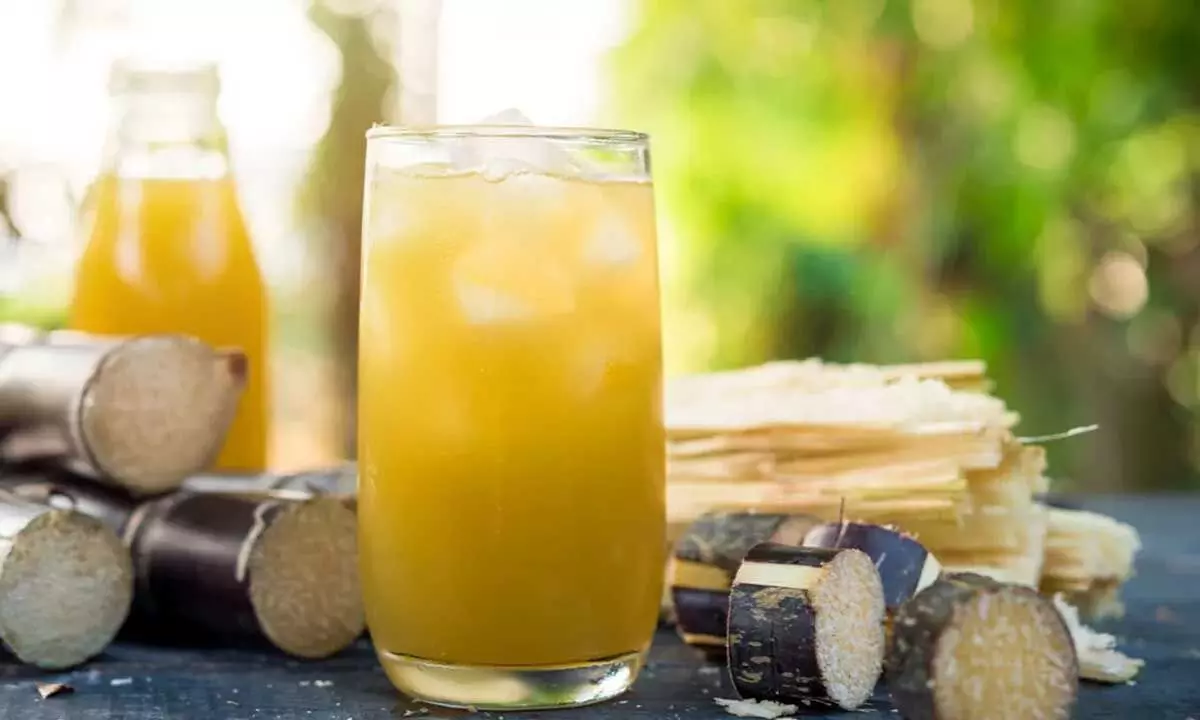Is Sugarcane Juice Good Or Bad For Diabetics?

Sugarcane juice is a popular beverage enjoyed in many parts of the world for its refreshing taste and perceived health benefits.
Sugarcane juice is a popular beverage enjoyed in many parts of the world for its refreshing taste and perceived health benefits. However, for individuals managing diabetes, concerns arise about its impact on blood sugar levels and overall health. This article delves into the debate surrounding sugarcane juice consumption for diabetics, weighing its potential benefits against its risks.
Understanding Diabetes
Before exploring the relationship between sugarcane juice and diabetes, it's essential to grasp the nature of diabetes itself. Diabetes is a metabolic disorder characterized by elevated blood sugar levels due to either insufficient insulin production (Type 1 diabetes) or the body's inability to effectively use insulin (Type 2 diabetes). Management of diabetes typically involves maintaining blood sugar levels within a target range through lifestyle modifications, medication, and sometimes insulin therapy.
Nutritional Profile of Sugarcane Juice
Sugarcane juice is derived from pressing sugarcane stalks, yielding a sweet liquid that is rich in nutrients. It contains essential vitamins (such as vitamin C, B-complex vitamins), minerals (including calcium, magnesium, potassium), and antioxidants. Moreover, it is a natural source of energy due to its high carbohydrate content, primarily consisting of sucrose, glucose, and fructose.
Potential Benefits for Diabetics
Despite its high sugar content, sugarcane juice offers some potential benefits for individuals with diabetes when consumed in moderation. Here are a few
Low Glycemic Index Sugarcane juice has a lower glycemic index compared to refined sugars, which means it causes a slower and gradual increase in blood sugar levels. This slower absorption may help prevent sudden spikes in blood glucose, making it a preferable choice over high-glycemic index foods.
Nutrient Density Sugarcane juice contains various vitamins, minerals, and antioxidants that can support overall health and potentially improve insulin sensitivity. These nutrients play essential roles in metabolic processes and may contribute to better blood sugar control when consumed as part of a balanced diet.
Hydration Proper hydration is crucial for individuals with diabetes to maintain optimal health. Sugarcane juice serves as a refreshing and hydrating beverage option, especially in hot climates, helping individuals meet their fluid needs without added sugars or artificial ingredients.
Risks and Considerations
While sugarcane juice offers certain potential benefits, it's essential to acknowledge the risks and considerations, particularly for individuals with diabetes.
High Sugar Content Sugarcane juice is naturally high in sugars, primarily sucrose, glucose, and fructose. Consuming large quantities can lead to a rapid increase in blood sugar levels, potentially exacerbating diabetes management issues and increasing the risk of complications.
Portion Control Moderation is key when consuming sugarcane juice, especially for individuals with diabetes. Limiting portion sizes and balancing sugarcane juice intake with other low-glycemic index foods can help mitigate its impact on blood sugar levels.
Individual Variability The response to sugarcane juice consumption can vary among individuals with diabetes based on factors such as insulin sensitivity, medication use, and overall dietary habits. It's essential for individuals to monitor their blood sugar levels closely and adjust their intake accordingly.
In conclusion, the debate surrounding the suitability of sugarcane juice for individuals with diabetes underscores the importance of moderation and individualized dietary choices. While sugarcane juice offers potential health benefits due to its nutrient content and low glycemic index, its high sugar content necessitates caution, especially for those managing diabetes. Consulting with a healthcare provider or registered dietitian can help individuals with diabetes make informed decisions about incorporating sugarcane juice into their diet while prioritizing blood sugar control and overall health.








